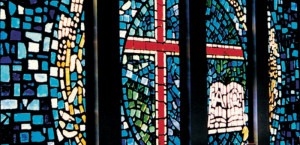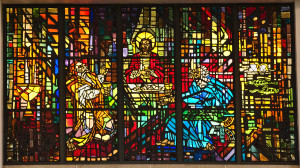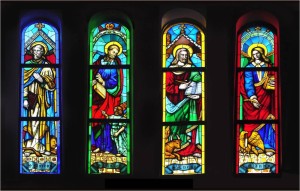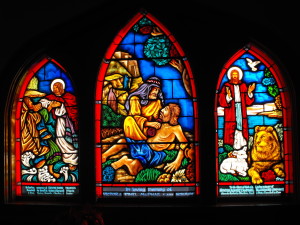The Church We Daydream About, Part 3: Shared Life and Structures
 In Part 1, we shared about a few things we don’t care that much about. Read those here.
In Part 1, we shared about a few things we don’t care that much about. Read those here.
In Part 2, we shared imaginations about the weekly worship gathering. Read those here.
Part 3…
 We (Aimee and Tony Kriz) are not church-goers. To be specific, currently, we do not regularly attend a brick-and-mortar church’s services or programs.
We (Aimee and Tony Kriz) are not church-goers. To be specific, currently, we do not regularly attend a brick-and-mortar church’s services or programs.
Not going to church is not our preference. We are very pro-church. We are proud of our individual stories, having been integral participants in numerous churches around the world. We are honored to have walked together with a Portland, Oregon church plant that grew into a model regional mega-church. We have supported and advised on dozens of new and transformational churches.
And, if there existed a neighborhood-church within walking distance of our house, we would passionately attend that church tomorrow.
 It is because of our deep love of church (community, ceremony and mission) that we have this conversation at least once a week: What is our dream church? On this page, we want to take our weekly discussion public. We would like you to weigh in.
It is because of our deep love of church (community, ceremony and mission) that we have this conversation at least once a week: What is our dream church? On this page, we want to take our weekly discussion public. We would like you to weigh in.
Here is a disclaimer. We are not attempting to describe an “ideal” church, this conversation is more about preference and our evolving values as Christ-followers living in the heart of one of  America’s least Christian cities: Portland, Oregon.
America’s least Christian cities: Portland, Oregon.
In this third offering, we want to talk about a few church structures. Again, these are some that seem to slip most often into our daydream-conversations:
Foundationally Neighborhood Based. It is difficult for us to imagine living out integrated faith and integrated community in a commuter church. We want to live, work, shop, recreate, commune,  educate, patronize, socialize AND worship within the same geographic space (walking world.) This is the best way that we can imagine a life without role-playing in divergent and displaced contexts and a life with genuine accountability and wholeness. To go one step further, we hope that this neighborhood church would encourage non-neighborhood people to leave and find a church within their own walking world. The hope is for everyone to be known.
educate, patronize, socialize AND worship within the same geographic space (walking world.) This is the best way that we can imagine a life without role-playing in divergent and displaced contexts and a life with genuine accountability and wholeness. To go one step further, we hope that this neighborhood church would encourage non-neighborhood people to leave and find a church within their own walking world. The hope is for everyone to be known.
Low Overhead. It is a question of financial congruence. So much church funding goes to facilities, utilities, staff and materials and that is hard for us to justify in our imagination. Could that funding be turned out into the community and the marginalized… and the spotlights replaced by candles?
 Cooperative. Secular cooperatives manage to run with an expectation of full participation by the full community, so why not a church? Instead of having a select few who are paid to have faith, could everyone be invited into community participation, finding a local cause to serve and the hope of an inspired missional life in the neighborhood?
Cooperative. Secular cooperatives manage to run with an expectation of full participation by the full community, so why not a church? Instead of having a select few who are paid to have faith, could everyone be invited into community participation, finding a local cause to serve and the hope of an inspired missional life in the neighborhood?
Activist But Without Church-Branded Programs. Utilizing philosophies like Asset Based Community Development (ABCD) the  church could see the neighborhood as a playground of needs and constructive organizations. Instead of feeling the need to re-invent social services under the church’s name, what if the church was released to give its time, treasure and talent to the pre-existent services being provided by lifelong cause-professionals that exist in every community.
church could see the neighborhood as a playground of needs and constructive organizations. Instead of feeling the need to re-invent social services under the church’s name, what if the church was released to give its time, treasure and talent to the pre-existent services being provided by lifelong cause-professionals that exist in every community.
Encouraging Communalism. Looking for increasingly courageous  ways to integrate life with one another. If a faith community is neighborhood-based, that will start the ball rolling. The hope is to “bump into one another” more often… to link arms in more realms of life. For us, shared housing has been one of the most transformative ways to practice communalized-faith.
ways to integrate life with one another. If a faith community is neighborhood-based, that will start the ball rolling. The hope is to “bump into one another” more often… to link arms in more realms of life. For us, shared housing has been one of the most transformative ways to practice communalized-faith.
It is far from an exhaustive list, these are just some of the themes that our imaginations drift toward. There are innumerable things missing from this list. That does not mean that those things are not also important to us.
So now it is your turn. What would you add or substitute from this list?







Trackbacks/Pingbacks
[…] the parish and individual as he/she is able to encounter God through the use of his/her gifts. As Tony Kriz writes, “Secular cooperatives manage to run with an expectation of full participation by the […]